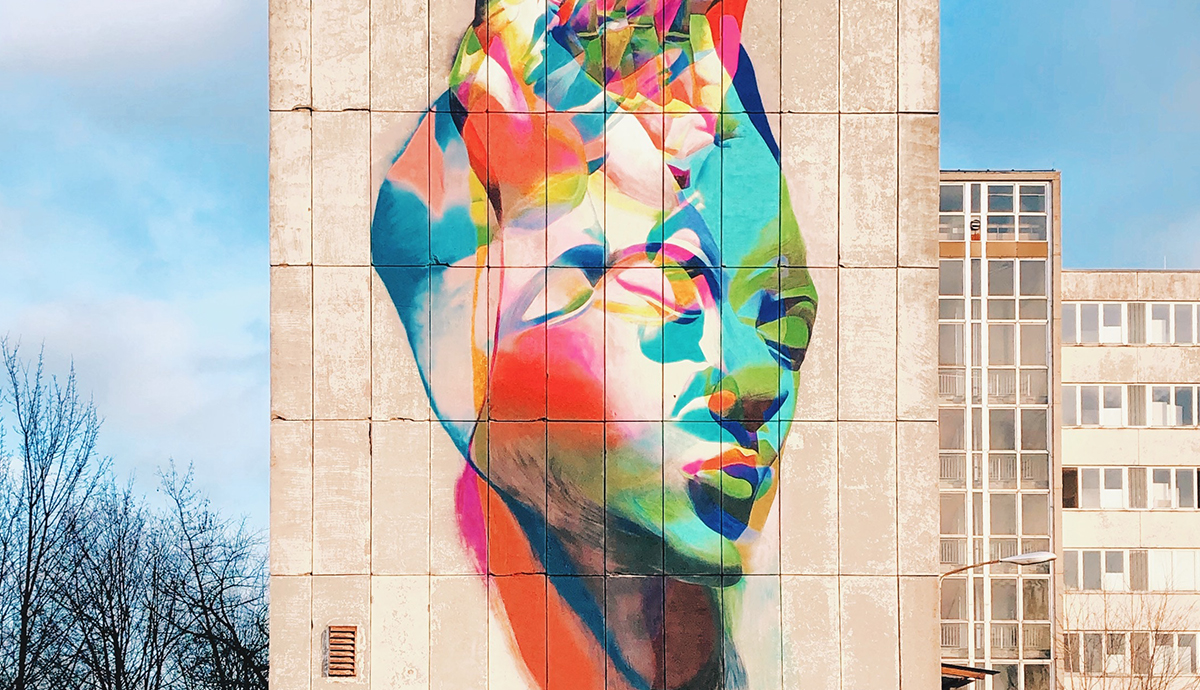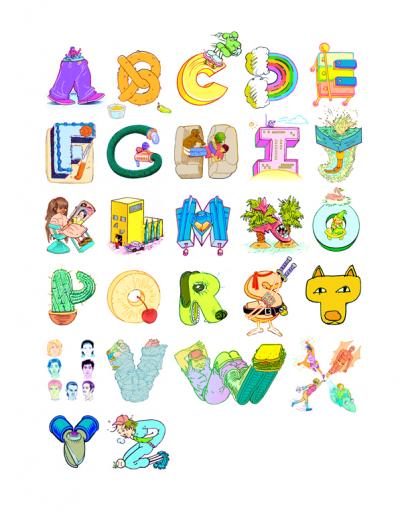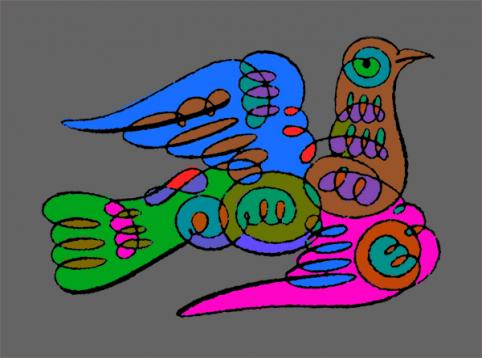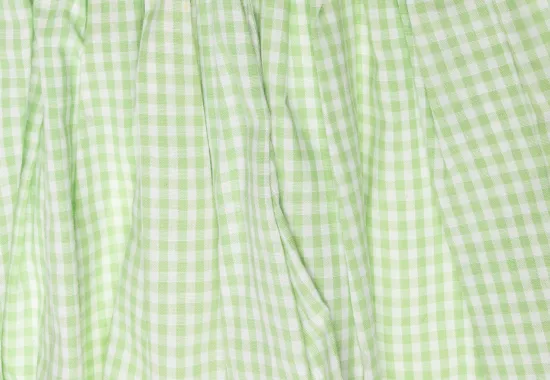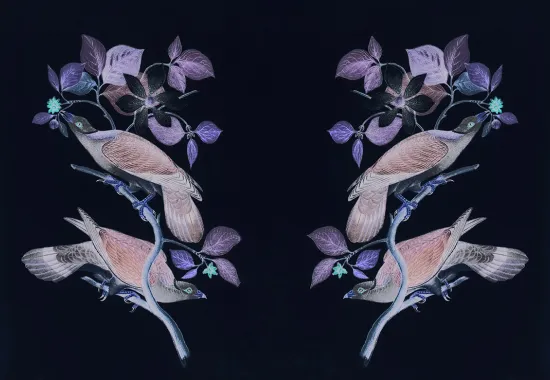“Shopping for Pants as Lesson in Language” as Lesson in Loss
It’s Saturday night and I’m taking part in a fantastic poetry reading. One of the editors of District Lit—an online journal that publishes excellent stuff and works hard to build community among its contributors and readers—has gathered a group of writers to read poems in the devil-themed basement of a lively bar. For the past few weeks, I’ve been happy to be joining them, eager to hear their poems, and excited to read my own—it’s my first reading since the release of my first book. As I make my way to the bar, however, I begin to worry. Not fear, not the early pangs of stage fright, not flop sweat seeping through my shirt and making me self-conscious and therefore more nervous, incredulous that my armpits could possibly be so wet when my mouth has suddenly gone so dry (though all of that is certainly still a possibility), but actual worry. Concern that I am about to ruin everyone else’s night by reading my poems of loss, of displacement, of doubt. These poems, not to mention their author, hardly seem a good choice for fun on a Saturday night.
In the end, I read my poems—maybe a bit too self-conscious, too eager to seem happy, to make a joke or tell a quirky story between poems—and the audience is receptive and supportive. It’s mostly an audience of poets and poets’ friends and family, after all, an audience inclined to be generous and understanding. Also, right after I read my poems, there’s a break so folks can stretch their legs and refill their drinks, and then some of the poets read very different poems: funny poems, poems about movies and cats and wizards and dildos. Without intending to, we complement one another and share poems that fit together to create a sort of whole, to enact the range of experience and emotion that literature is capable of holding together all at once. It’s fantastic. We talk over drinks before saying good night and heading home, and, as far as I can tell, my poems haven’t ruined anyone’s good time.
All the same, I’m left wondering: What the hell is wrong with me? Why can’t I write something that doesn’t begin or end in sadness, that doesn’t threaten to wallow in loss? Before the reading ends, another poet confesses his worry that he’s chosen the wrong poems to share, especially in such a setting on such a night, and then he reads beautiful poems of grief and desire, noting that these are the poems he feels compelled to write, that he feels like elegy has become his default mode. I know what he means.
I wrote the first draft of “Shopping for Pants as Lesson In Language” in 2005, about a year after my dad died. Unpacking a box after moving into a new apartment, I found a notebook from 1998, from my undergrad days. It included a brief account of searching for back-to-school pants as a fat kid. I thought the story—and its use of the word husky, which I always hated—might become a poem, maybe a funny poem, one that poked some fun at well-worn ideas about the shortcomings of language compared to lived experience. Instead, as I wrote and revised, grief took over, and I quickly found myself with a poem about how the language we commonly use to describe death was proven utterly untrue by my own experience.
I used to tell students that most of literature boils down to either love or death, and that even when it seems to boil down to love, you can boil it a minute longer to get to death. But I don’t know if I was ever really talking about literature or merely about the way I’m predisposed to read it. Even when I make an effort to move beyond loss, it still seems to pop up almost every time I open my notebook and set to scribbling. Even as my grief has faded with the years, I find it keeps edging back to demand my attention. A poem celebrating playoff hockey circles back to talking with my dad just days before he died. A poem about the Beastie Boys becomes an elegy for both MCA and my younger self. A poem about watching my daughter look at a painting veers toward panic at having to explain violent death to a toddler.
What happened when I wrote “Shopping for Pants as Lesson in Language” happens a lot less now than it used to. But it happens still. And I’m learning, slowly, to let it. Like it or not, grief isn’t going anywhere. I’m getting older, losing family and friends, watching my daughters grow too quickly, hearing daily about some new tragedy, some new ecological disaster and all its attendant loss. I suspect I’ll be writing poems of loss and displacement and doubt for as long as I’m writing poems. So I’m trying to figure out how to let it in, not as an overwhelming and overbearing center of attention, but as part of an overall whole, as a way to amplify other emotions, other experiences.
My dad died ten years ago, and the immediate grief knocked me flat. But grief’s real power is to sneak up on us years later, an uninvited party guest, maybe disguised as some other emotion, some other experience, some half-friend we haven’t seen in a while. If grief is the boorish drunk who insists on crashing my parties, then maybe the best thing to do is to meet him just inside the door, to make sure he’s brought a gift worth letting him stay a while, to introduce him to the wizards and dildos that will keep him in check. And then, when he’s overstayed his dubious welcome, to kick him out again and keep the door locked as long as I can.
Brian Simoneau is the author of the poetry collection River Bound (C&R Press, 2014), which won the De Novo Prize. His poems have appeared in Boulevard, Cave Wall, The Collagist, Crab Orchard Review, The Georgia Review, Mid-American Review, Southern Humanities Review, and other journals. He lives in Connecticut with his wife and two kids. Brian is featured in North American Review's issue 297.1, Winter 2012.
Illustration: Darren Ragle, a Sacramento based artist and illustrator. My work is influenced by psychedelic poster artists of the 60's, comics and American illustrators of the 20th century. My illustrations have been published by LA Record and the Playboy Jazz Festival. I created a graphic novel about earthquake preparedness for the City of Los Angeles. I've designed fine art prints for Jonathan Adler, Fab.com, Timothy Oulton, One Kings Lane and Anthropologie. http://darrenragle.com/
Recommended
The Shirt
After Hearing David Rothenberg Sang with Birds
Frothing Pink Poodle Droppings


